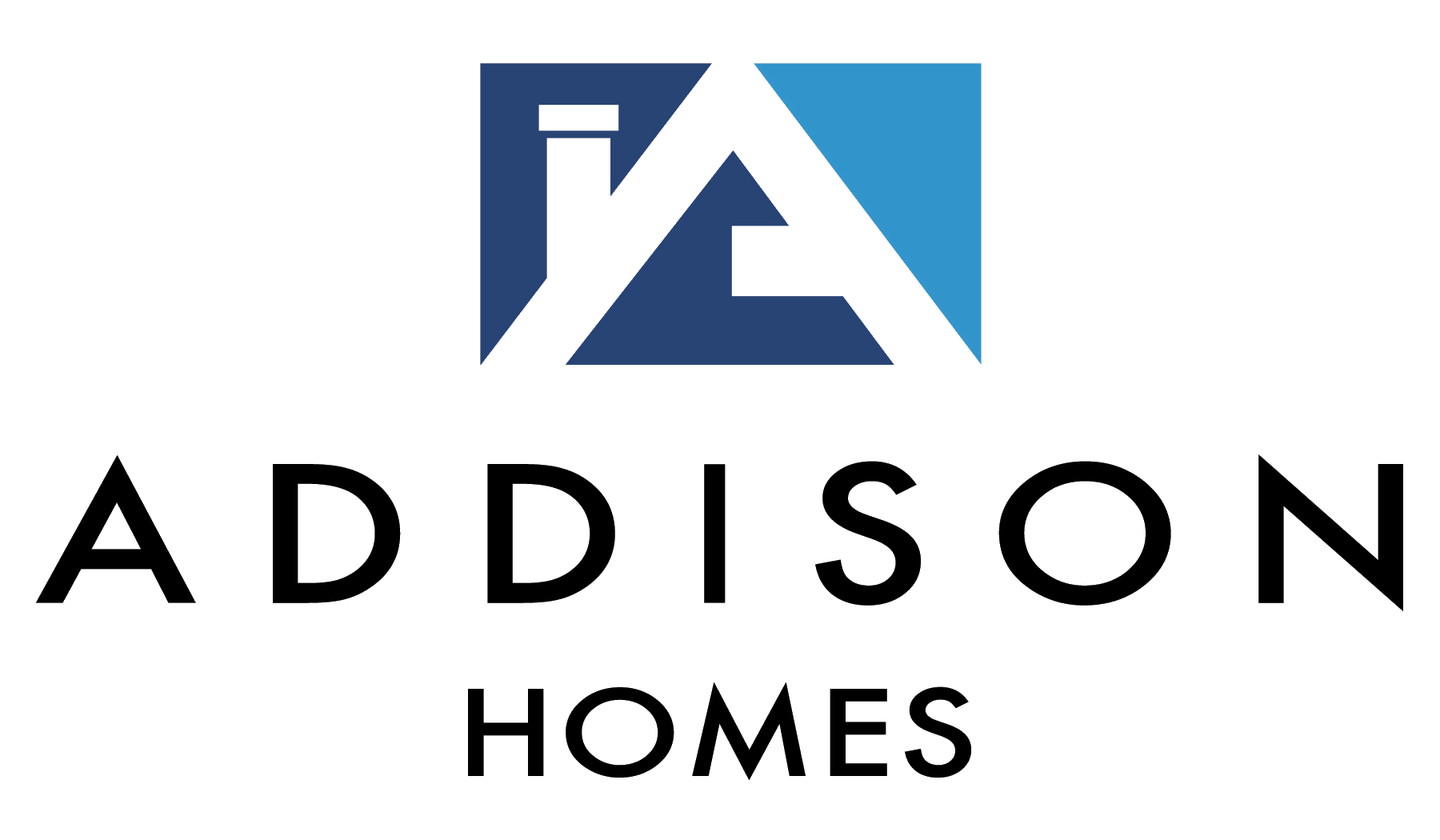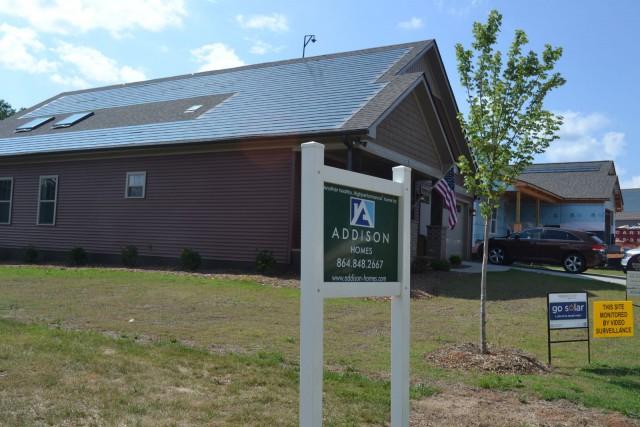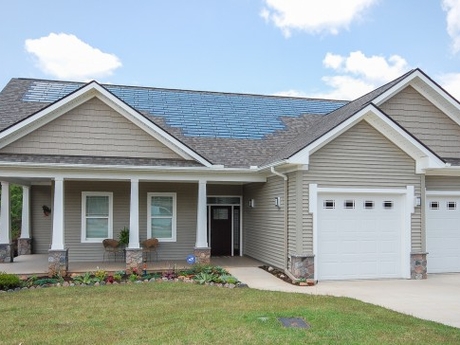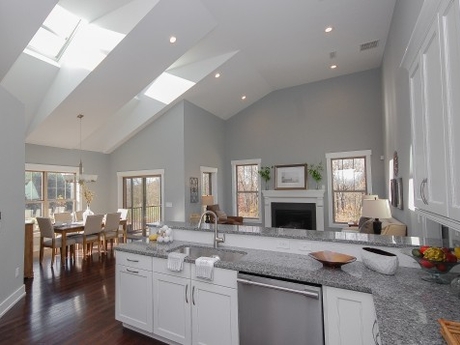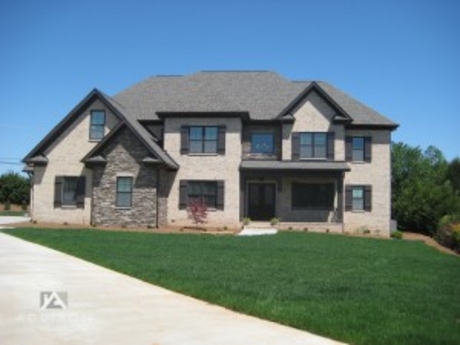- Our Building Philosophy
- Our Process
- Home Plans
- Our Work
- Reviews & Awards
July 11, 2016
The following article spotlighting Addison’s solar homes appeared in the June 27-July 10 edition of GSA Business Report.
Builder looks to replicate solar success
By Bill Poovey, GSA Business Report, bpoovey@scbiznews.com
Trailside is a few hundred feet uphill from the GHS Swamp Rabbit Trail. (Photo by Bill Poovey)
The builder of a solar homes neighborhood that is unique in the Upstate wants to do it again. With 15 of 16 home sites sold at Trailside in the Berea area, Addison Homes President Todd Usher said demand for environmentally friendly solar is growing and the technology is becoming more affordable. With homes at Trailside priced at $250,000 and up, Usher said buyers are realizing that their biggest lifetime investment is enhanced by long-term energy cost-saving, air quality-enhancing features that currently qualify for tax incentives and rebates. The cul-de-sac development is also just uphill from the Greenville Health System Swamp Rabbit Trail.
Usher said he is looking to develop another solar neighborhood and has seen other builders watching the flurry of construction at Trailside.
“I see a lot of people out here checking it out. I know by the vehicles they drive and their dress they are builders, but no one has really jumped on board and running with it,” Usher said. “The main kind of standard that we have stepped up to in recent years has been this Department of Energy Zero Energy Ready Homes program, and we are the only builder in this area that is even part of the program, much less building all of our homes to that.”
The federal program describes the homes as “so efficient, almost all or most annual energy consumption can be offset with renewable energy.”
While looking for another residential development site, Usher said he has received offers on the model home at Trailside but has resisted selling the solar showcase, for now. Sunshine-powered homes in the 12-acre community do not have rooftop solar panels but instead have solar shingles. The homes have light tunnels and solar-powered skylights that relegate electrical wall switches to nighttime use. Below the floors, instead of insulation, crawl spaces have sealed liners and are included in the interior ventilation.
Usher said he bought the tract near Furman University for Trailside after seeing a demonstration home in Midland, Mich., where Dow Chemical Co. makes the solar shingles used at Trailside.
“They had tried to build a house to the median price point in the market and used energy efficiency and solar for renewable energy to show that you didn’t have to spend a million dollars to have a zero energy home or a home that is superefficient and actually generated some power,” Usher said. “For me, that was the real draw to this community, and of course the trail. We felt like there is some synergy between our ideal client and the type of folks who are on the trail, which has definitely proven to be true.”
Longtime Greenville resident Janice Varat, an avid trail user, said she spotted the new neighborhood from the trail, bought one of the lots and is moving to Trailside. Varat said the three-bedroom house that Addison Homes is building for her is about a third the size of the house she is selling near downtown.
“I run the trail constantly,” Varat said. “I saw a sign and thought, ‘You would love living on the trail.’ As things progressed I did get my house sold. I really didn’t think much about the energy stuff and all that, but I’m going to be living near the trail.” Varat said she has since learned more about the energy-saving features and is looking forward to “no power bill or a very small power bill … From what I understand, at the end of the year if you have created more power than you use (Duke Energy) will send a check.” She plans to move to Trailside in August.
Usher said among the residents who are already moved in and their neighbors whose homes will be finished in months ahead, nobody will be complaining about electric bills. Usher said the model home generates more power than it uses and the monthly electric bill is Duke Energy’s user fee of about $9.
On top of a 30% federal tax credit for homeowner purchases and installation of solar equipment, such as rooftop systems and water heaters, and the state’s tax credit of 25% on the purchase and installation of a solar energy system, the electricity provider at Trailside — Duke Energy — has a solar rebate program and a net metering system that could earn a customer money.
Duke Energy spokesman Ryan Mosier said in an email there are more than 400 customers with solar power installed on their homes, up from 250 in June 2015. Since October, the utility has been offering residential and business customers who install solar power with a one-time rebate of $1 for every watt of solar energy. He said more than 1.5 million watts have been installed in the initiative that was started in response to a 2014 state law.
“Early on, we recognized that the cost was the primary barrier to more residential solar in South Carolina, so we designed the $1 per watt rebate to help our customers overcome the upfront financial barrier,” Mosier said. He said customers receive the rebate when their facilities are connected.
“Through the end of first quarter 2016, 158 Duke Energy residential customers have been paid a little more than $1.3 million in solar rebates in South Carolina,” Mosier said.
Mosier said customers who choose to net meter are credited for electricity generated by their solar equipment that exceeds the amount they used that month. On an annual basis the customer is paid for any accumulated or accrued excess energy, at a rate of 4.83 cents per kilowatt hour. The annual calculation is then restarted.
Rajendra Singh, a Clemson University electrical and computer engineering professor who is considered a semiconductor and photovoltaic expert, said those payouts to electricity customers should eventually be increased to the same amount customers in South Carolina pay for electricity. He said that is currently about 15 cents per kilowatt-hour.
Singh said major manufacturers are pushing renewable power sources and consumers should demand that politicians get on board in making solar more available at lower cost.
“We are not in sync with the real world,” Singh said of what he considers slow progress in promoting and developing solar power generation.
Recently, South Carolina’s electric cooperatives announced a solar initiative that will develop solar farms as an option for their customers. An accompanying customer survey showed 70% of respondents expressed interest in a solar program but said they prefer using a community solar farm over having equipment on their personal property.
Mosier said solar equipment and energy efficiency measures “are cheapest to install when a home is built and not as a retrofit.”
“That could change as the cost to install residential solar technology is expected to decline,” he said.
Usher said solar equipment costs are dropping and with the economy rebounding “it has turned out to be a good time” for a development like Trailside. While striving to make the solar homes affordable, Usher said construction of every home he builds in the Upstate, including Trailside, exceed minimum standard quality.
“What we’ve found here is it’s where people want to invest their money in a home,” Usher said. “They want to invest in better and better performing … With this program we are essentially building homes to what will probably be code in 20 years-plus.” He said the quality construction is “largely what they are looking at.”
Usher said most Trailside buyers are relocating to Greenville.
Glenda Burke, who has recently moved to a Trailside home from Goodlettsville, Tenn., said her husband’s job brought them to Greenville. She said they are nearing retirement age, said their home has one of the larger solar shingle units in the neighborhood. Burke said the rebates were a major reason they chose to invest in a solar home.
“Energy wise, more builders need to be doing this,” she said.
Burke said the trail was also a factor.
“Hop out the back door,” she said. “We came from a community that had a huge walking trail. That is something we are also looking for is the fitness side of it.”
Reach Bill Poovey at 864-235-5677, ext. 104.
Latest Blog Posts
DOE’S HOUSING INNOVATION AWARDS PROGRAM RECOGNIZES NATION’S TOP BUILDERS ON THE PATH TO ZERO ENERGY READY HOMESTwo Addison Homes projects have earned 2016 Housing Innovation Awards from the U.S.... Read more
Addison Homes won the Southern Home & Garden Bridge Award for Green Building for the third consecutive year.This award-winning green home enjoys a savvy-yet-simple aesthetic – neutral palette,... Read more
We are pleased to announce that Addison Homes has received a 2015 Housing Innovation Award from the U.S. Department of Energy. A new home builder in Greenville and Upstate SC, we are being recognized... Read more
